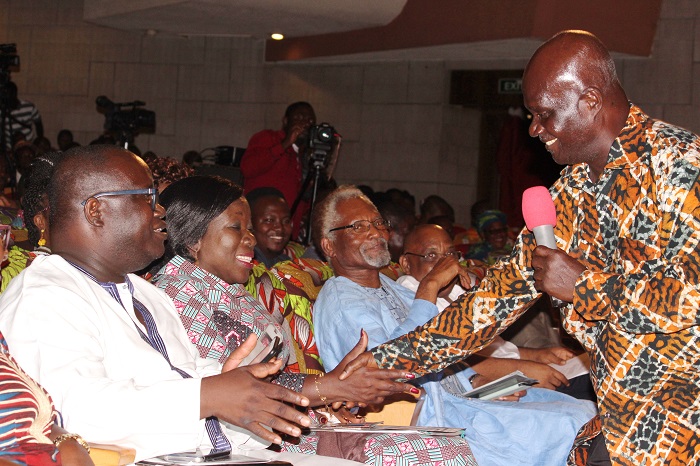
Ghana needs cultural revolution - Prof. Agyekum
The Director of the School of Performing Arts of the University of Ghana, Legon, Professor Kofi Agyekum, has called for a cultural revolution in which all Ghanaians must join forces to project the country’s rich culture.
He said the outside world was trying to destroy Ghana’s culture because of the influence of foreign cultures, and indicated that it was only Ghanaians who could save their culture from that destruction through the use of Information and Communications Technology (ICT) and other means.
Prof. Agyekum made the call at the first national conference organised by the Ghana Culture Forum (GCF) in Accra yesterday.
Held on the theme: “Projecting our National Culture: the Quest for Creativity, Excellence and Relevance,” the conference was attended by actors, musicians, fashion designers and other artistes.
It was to deliberate on the challenges facing the creative arts industry and find ways to improve the fortunes of artistes in the country.
National duty
Prof. Agyekum expressed worry that Ghanaians were losing their love for the country’s rich culture in terms of names, language, food and clothing.
For instance, he said, people were given foreign names they did not understand while many others preferred exotic foods to local dishes.
Besides, he said, the local languages used in music by musicians were not rich while the craze for foreign movies was also alarming.
Prof. Agyekum said the country’s forebears had preserved the country’s culture and it was the turn of the current generation “to keep the culture, project it and leave it in a better shape for posterity”.
“We need a cultural revolution and we must all come together to make it happen,” he said.
Chiefs in politics
Prof. Agyekum expressed worry about the involvement of some chiefs in politics; since they were the embodiment of the country’s culture, they should stay above partisan considerations.
“I feel bad when chiefs come so low because they are the embodiment of our culture. These chiefs indulge themselves in politics and throw away the culture,” he said.
Ashigbey on culture
The Managing Director of the Graphic Communications Group Limited (GCGL), Mr Kenneth Ashigbey, who chaired the opening session of the conference, urged Ghanaians to put Ghana first in all their dealings and stop self-hatred.
He said posterity would look at what each one did and judge them accordingly, hence the need for all Ghanaians to encourage one another to contribute towards the development of the country.
Mr Ashigbey proposed that the country’s culture be brought to the centre of the nation’s development in the areas of economy, engineering, architecture, among other sectors.
He urged Ghanaians to patronise local products, develop the taste in domestic tourism and stop pirating movies, music and other creative works.
Culture minister
Opening the conference, the Minister of Tourism, Culture and Creative Arts, Mrs Elizabeth Ofosu-Adjare, said a careful study of global and domestic markets gave an indication that tourism, together with cultural products, would play an important role in diversifying and expanding the national economy.
“The implications are that we should, in the next few years, be creating and producing on a large scale and have the business acumen to get our goods onto both domestic and international marketplaces,” she said.
Mrs Ofosu-Adjare charged artistes to position themselves well in order to cash in on the celebration of 60 years of Ghana’s birth in March, 2017.
She lauded the GCF for its effective collaboration with the ministry and judicious use of resources, and asked the forum to project the national culture and continue to strive for excellence and relevance.
GCF achievements
The co-Convener of the GCF, Prof. Esi Sutherland-Addy, said Ghana’s rich culture had the potential to put the country on the world map.
She advised local artistes to look for ways to improve themselves, saying: “If you are a star, it does not mean you are on top of the world, you can learn.”
Prof. Sutherland-Addy mentioned the push to have the National Film Bill passed into an Act by Parliament, capacity building training for artistes and the increased number of member organisations from 15 to 68 as some of the achievements of the GCF.
